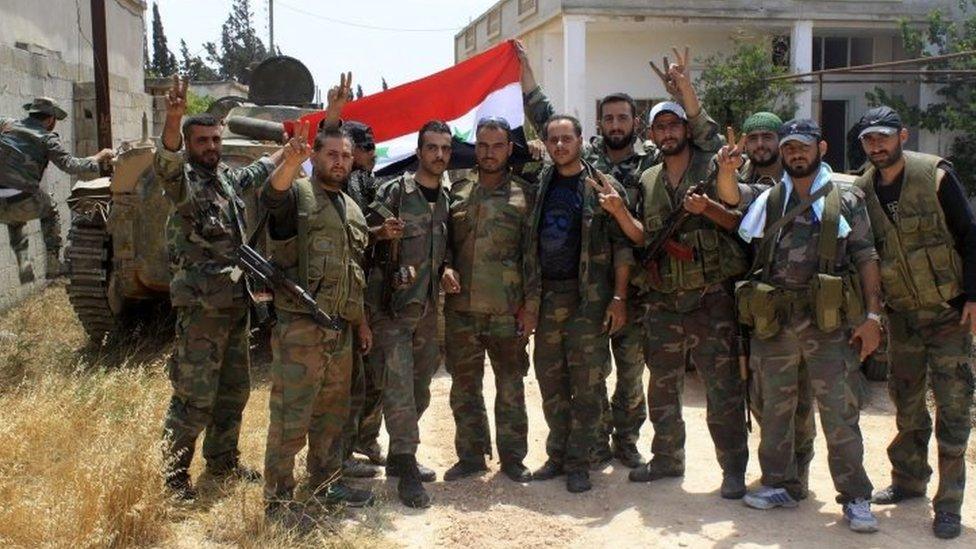Syria conflict: Are refugees prepared for life in the UK?
- Published
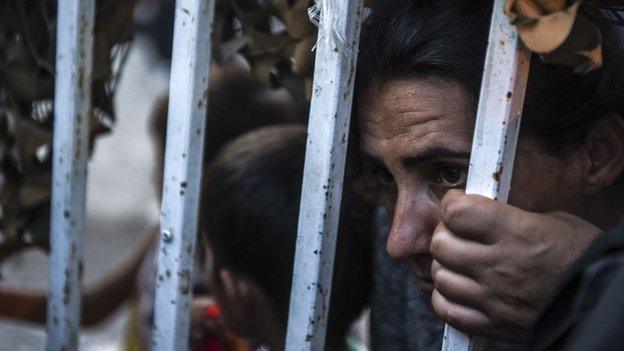
The first of 20,000 Syrian refugees taken in by the UK are due to arrive in the coming days. But what will life be like for them when they get here?
In an office-turned classroom in Bradford, Syrian refugees are locked in concentration.
Today's lecture is about the basics. They are learning English, a language most have never studied before.
They are also undergoing something of a crash course in how to live in the UK, which includes how to register with a GP, how to get medication from a chemist's and how to get children into school.
There's a lot to learn.
'Build a future'
But the men and the women, with their bright headscarves, who have escaped from the horrors of the Syrian war, are determined to take it all in, impatient to start their new lives in this country.
Suha is here with her husband Abdul Aziz, both 24, and their one-year-old baby daughter Arerm. For her this is a chance to start again, to make a future for her baby, who was born a refugee.
"Yes, of course we are happy," she says.
"Now she is guaranteed the opportunity to study and to build a future. That is so important. We can all see the situation back in Syria and even in Jordan, where things are getting worse."
Abdul Aziz and Suha say they feel welcome in the UK
The couple, who met while studying at university in the Syrian city of Homs, have been separated from other family members since coming to the UK.
Suha says she has left behind two sisters who are currently still in Homs and battling against a "very dangerous" situation.
Meanwhile Abdul believes two of his relatives have made it to Australia, which has pledged to take in 12,000 Syrian refugees.
But both admit they have "lost people" in the conflict, and did not want to elaborate further.
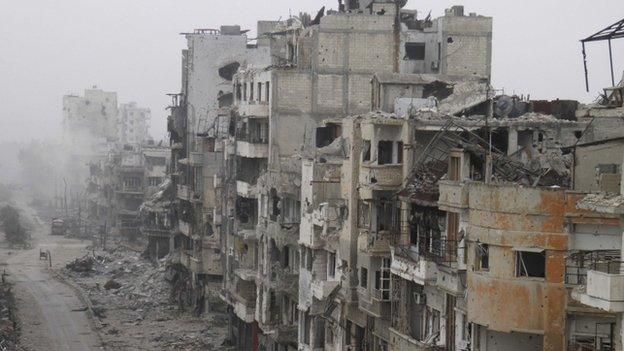
The family leave behind scenes of devastation in their home city of Homs
However, the family are among the lucky ones.
Just 216 Syrians have so far come to Britain under the government's Vulnerable People Relocation Scheme, external (VPRS), which was launched in January 2014.
That is about to change, with the prime minister's announcement that 20,000 refugees would be brought from camps in countries bordering Syria into the UK by 2020.
The process starts in the refugee camps and frontier towns on Syria's borders with Jordan, Lebanon and Turkey.
Officials working for the UN High Commissioner for Refugees (UNHCR) will conduct interviews to identify the most vulnerable people meeting the requirements, who will be invited to Britain.
To qualify, a person must either be a survivor of torture or violence, a woman or child at risk, or in need of medical care. There may also be further interviews by Home Office staff to address any security concerns.
Before anyone can travel to the UK, a local authority must agree to take them in.

Facts about the Vulnerable People Relocation Scheme
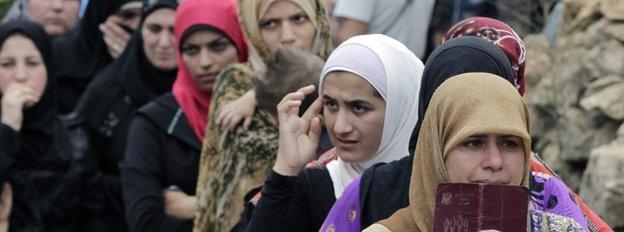
Under the scheme all of the "paperwork" is done before the refugees arrive. From day one they get housing, have access to medical care and education and they can work
Refugees taken into the UK via this scheme will be granted five years' humanitarian protection, external which includes access to public funds, the labour market and the possibility of family reunion, external, if a person was split up from their partner or child when leaving their country
After those five years they can apply to settle in the UK, external
Mr Cameron said the scheme would be funded for the first 12 months by the government.
Before the scheme was introduced nearly 5,000 Syrians were granted asylum to the UK in the last four years

But the issue of who pays for the relocation scheme may become a contentious point.
Bill Dennis is from Migration Yorkshire, one of several regional groups tasked by the Home Office to establish which local authorities across the UK will take Syrian refugees.
He says councils are coming forward to take on refugees, but many are asking for more detail.
"They're saying, 'we need to see the package, we need to see the details and what the implications are'.
"But I don't think that will stop councils responding positively in the long run."
Currently 106 of the 216 refugees in the UK have been given a roof over their heads in Bradford.
The city's Horton Housing Association has been funded by the Home Office to find them accommodation and offer other support, such as English classes.
The association's chief executive, Paul Gartland, said the first task was to make the refugees understand that they were no longer in danger.
"People land in the UK, a very strange country to them I'm sure; different norms, culture, and the first thing is to make them feel safe, secure and welcome - which is what we do at the airport," he said.
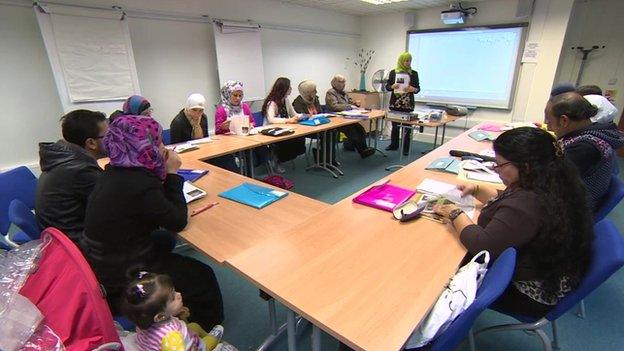
The lessons for refugees have been organised by the housing association
In the modest, but spotless, flat where his family now lives, Abdul thanks God and the UK for the chance to start again.
The war stopped his university studies in Homs but he says his student days are over. He wants to work to support the family.
"Of course we miss our family and friends but here we are establishing new connections. So now we have friends. We are trying to mix with others and get integrated with the society more," he says.
His wife also stresses the family's gratitude for the welcome they have received.
"We don't have the feeling that we are causing a crisis in Britain. In Lebanon or Jordan you would feel that the Syrians are a problem. But here, no-one has complained. You feel a sense of welcome," she adds.
- Published7 September 2015
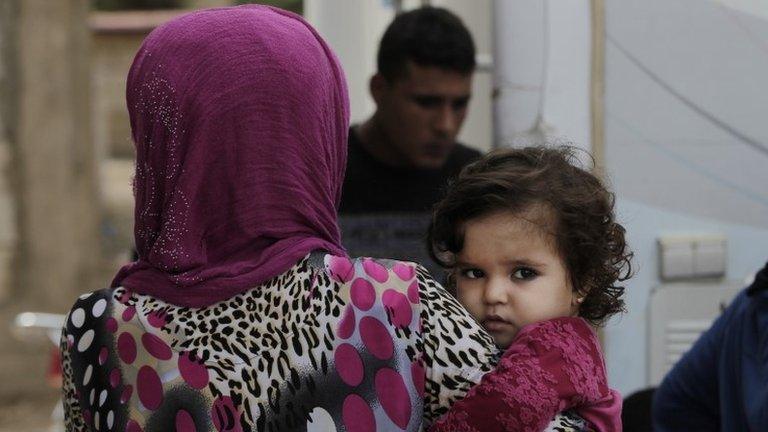
- Published16 September 2015
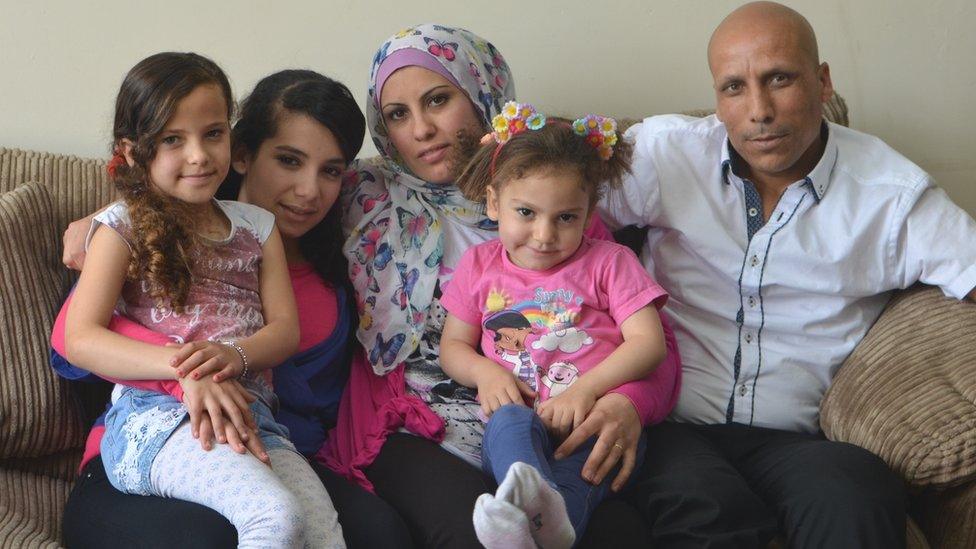
- Published4 September 2015
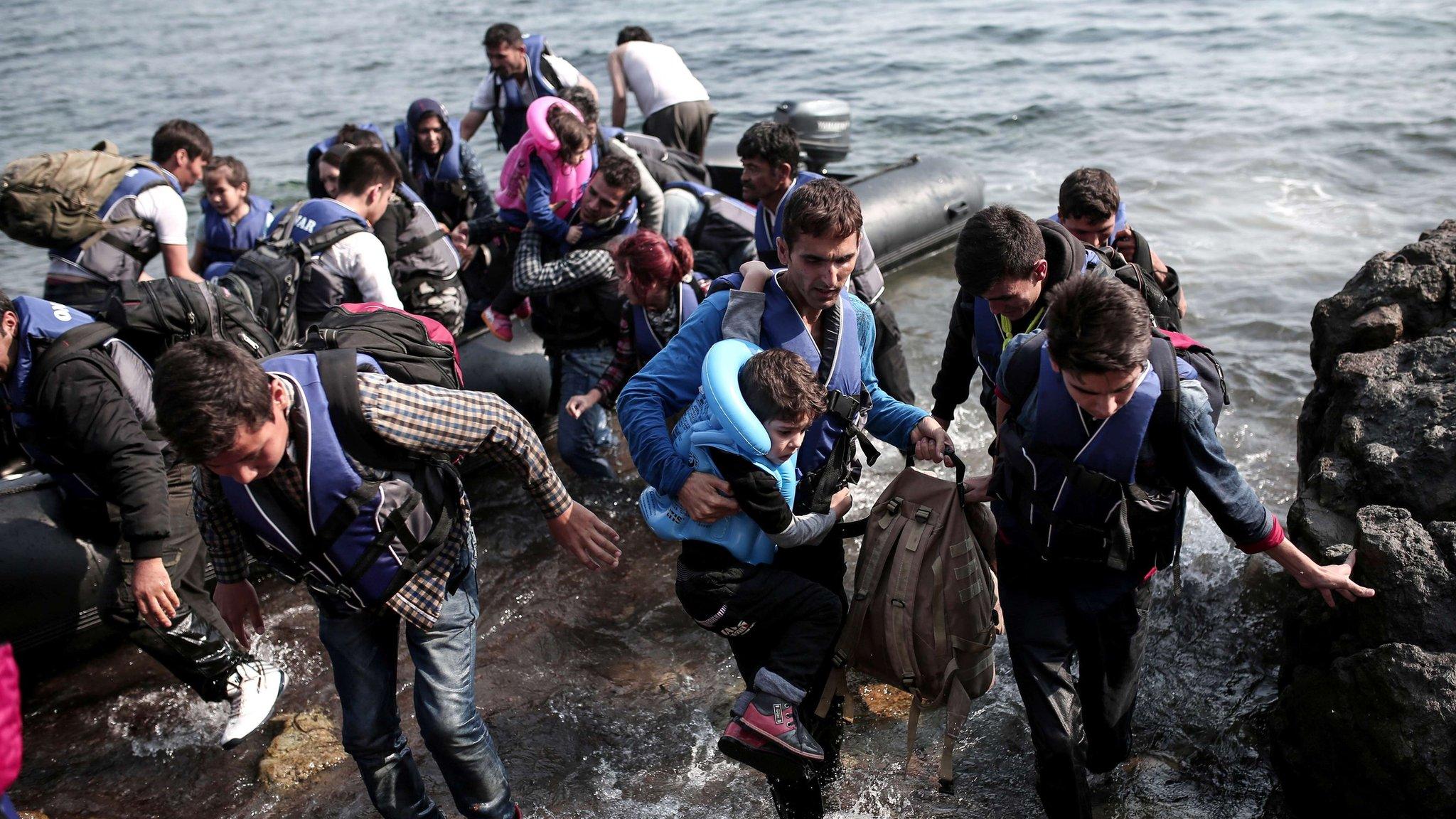
- Published14 September 2015
